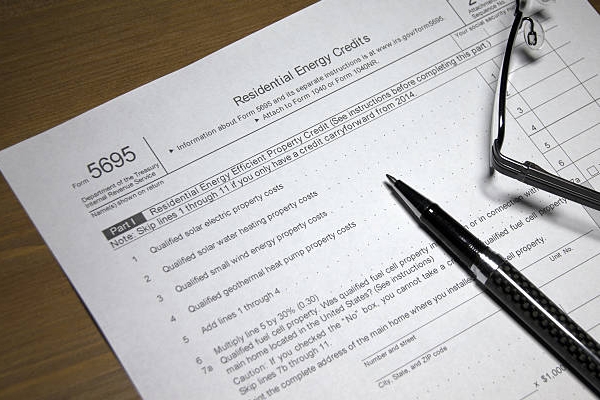As climate change and the energy crisis intensify, solar energy, as a clean and renewable energy source, is receiving increasing attention. To promote the development of solar energy, the U.S. government has introduced a series of tax incentives, the most important of which is the federal solar energy tax credit (Investment Tax Credit, or ITC). These policies not only encourage individuals and businesses to install solar energy systems but also provide a tremendous boost to the development of the solar industry. This article will delve into the specifics of the federal solar tax credit, its impact on the solar industry, and how it may change in the future.
Specifics of the Federal Solar Tax Credit
Under the proposed legislation, the solar ITC would remain at 26 percent for projects that begin construction in 2021 and 2022, dropping to 22 percent in 2023 and to 10 percent for commercial projects in 2024. Residential credits, on the other hand, will end entirely in 2024. This means that for an individual residential project to qualify for the maximum tax credit, construction would have to begin by 2023. Commercial and utility projects would follow a similar declining schedule, but the value of their tax credits would be permanently set at 10 percent beginning in 2024.

The new bill also includes a one-year extension of the onshore wind production tax credit/ITC at 60% of its full value, and a 30% offshore wind investment tax credit for projects that begin construction between January 1, 2017, and December 31, 2025. In addition, Congress is scheduled to pass a bill that would extend the solar investment tax credit (ITC) for two years and provide additional funding for research and development, including soft costs critical to distributed energy deployment, as well as support for federal land use rights for renewable energy projects. The complete legislation includes the $900 billion Covid-19 bailout program and the 2021 omnibus spending bill.
The Role of the Federal Solar Tax Credit
The federal solar tax credit currently allows consumers to deduct up to 26 percent of the cost of installing a solar panel system on their home on their federal income tax, without a refund. As a result, customers can reduce their federal income tax by up to $2,600 for every $10,000 spent on solar energy. For example, if you purchase a $30,000 system, you could reduce your federal income tax by up to $7,800. This will make solar more affordable for some people, provided their taxable income allows them to take the credit.

"We are pleased to see Congress step up to provide some relief for Americans in the wake of our country's descent into public health and economic catastrophe," said Abigail Ross Hopper, President and CEO of SEIA." This pandemic has taken an immeasurable toll on American families, and we deeply sympathize with those who have lost loved ones and those who have suffered financially as a result of the ongoing crisis. In the coming years, we have the opportunity to build a stronger, more reliable, and more equitable American energy economy, and the action Congress is taking today is a helpful down payment.
How the Federal Solar Tax Credit Helps the Solar Industry
The solar tax credit has been a huge success for the solar industry. According to the Solar Energy Industries Association, the U.S. solar industry has grown more than 10,000 percent since its enactment in 2006. This growth has resulted in hundreds of thousands of jobs and billions of dollars in investment in the U.S. economy.
- Driving Industry Growth: The federal solar tax credit has significantly reduced the initial cost of solar installations, making solar systems affordable to more individuals and businesses. As the solar market expands, the cost of producing solar equipment is coming down, further boosting the popularity of solar.
- Job Creation: The rapid growth of the solar industry has brought about a large number of job opportunities. According to statistics, the solar industry is now one of the fastest-growing industries in the U.S., providing hundreds of thousands of high-paying jobs in a wide range of career fields, from research and development and manufacturing to installation and maintenance.
- Environmental Benefits: The widespread use of solar energy systems significantly reduces greenhouse gas emissions and helps mitigate climate change. Solar panels do not produce any carbon emissions and are typically backed by a 25-year or longer warranty, making them a reliable source of energy for the long term. As far as we know, the sun shines every day and solar energy works even on cloudy days.

Changes and Challenges Ahead
While the federal solar tax credit has played an important role in advancing the solar industry, there are still some challenges and uncertainties ahead. For example, the phasing out of tax credits will likely affect the economics of solar projects, especially for individual residential solar panels for hmoe projects. In addition, policy uncertainty may affect investor and consumer confidence.
To address these challenges, governments and the industry need to take a variety of measures. For example, through R&D investments to reduce the cost and increase the efficiency of solar energy systems. Through policy support and market mechanisms to promote the development of distributed energy and energy storage technologies, and through education and outreach to increase public awareness and acceptance of solar energy.
The federal solar tax credit has made a significant contribution to promoting the development of the U.S. solar industry over the past decade or so. By lowering the cost of solar installations, creating jobs and reducing environmental pollution, the tax credits have laid the foundation for a more sustainable and prosperous energy future. Despite the challenges ahead, the solar industry is expected to continue to thrive through policy support, technological advances, and public participation.
If you are considering installing a solar energy system, understanding and taking advantage of the federal solar tax credit is a smart choice. With a detailed understanding of the policies and market dynamics, you can better plan and realize your solar investment and enjoy the multiple benefits of clean energy. Sign up for powerhome to access a free guide to learn more about solar panels and tax credits to ensure you get the most out of your solar investment.
(1).png)
(1).png)